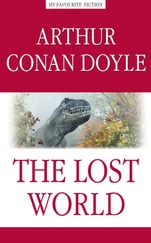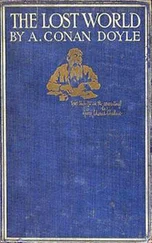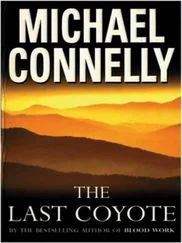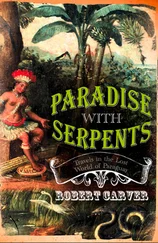Michael Crichton - The Lost World
Здесь есть возможность читать онлайн «Michael Crichton - The Lost World» весь текст электронной книги совершенно бесплатно (целиком полную версию без сокращений). В некоторых случаях можно слушать аудио, скачать через торрент в формате fb2 и присутствует краткое содержание. Жанр: Детская проза, на английском языке. Описание произведения, (предисловие) а так же отзывы посетителей доступны на портале библиотеки ЛибКат.
- Название:The Lost World
- Автор:
- Жанр:
- Год:неизвестен
- ISBN:нет данных
- Рейтинг книги:5 / 5. Голосов: 1
-
Избранное:Добавить в избранное
- Отзывы:
-
Ваша оценка:
- 100
- 1
- 2
- 3
- 4
- 5
The Lost World: краткое содержание, описание и аннотация
Предлагаем к чтению аннотацию, описание, краткое содержание или предисловие (зависит от того, что написал сам автор книги «The Lost World»). Если вы не нашли необходимую информацию о книге — напишите в комментариях, мы постараемся отыскать её.
The Lost World — читать онлайн бесплатно полную книгу (весь текст) целиком
Ниже представлен текст книги, разбитый по страницам. Система сохранения места последней прочитанной страницы, позволяет с удобством читать онлайн бесплатно книгу «The Lost World», без необходимости каждый раз заново искать на чём Вы остановились. Поставьте закладку, и сможете в любой момент перейти на страницу, на которой закончили чтение.
Интервал:
Закладка:
Of course, among scientists, that represented a well-known difference in personality. Physics was a perfect example. The experimentalists and the theorists lived in utterly different worlds, passing papers back and forth but sharing little else in common. It was almost as if they were in different disciplines.
And for Levine and Malcolm, the difference in their approach had surfaced early, back in the Santa Fe days. Both men were interested in extinction, but Malcolm approached the subject broadly, from a purely mathematical standpoint. His detachment, his inexorable formulas, had fascinated Levine, and the two men began an informal exchange over frequent lunches: Levine taught Malcolm paleontology; Malcolm taught Levine nonlinear mathematics. They began to draw some tentative conclusions which both found exciting. But they also began to disagree. More than once they were asked to leave the restaurant; then they would go out into the heat of Guadelupe Street, and walk back toward the river, still shouting at each other, while approaching tourists hurried to the other side of the street.
In the end, their differences came down to personalities. Malcolm considered Levine pedantic and fussy, preoccupied with petty details. Levine never saw the big picture. He never looked at the consequences of his actions. For his own part, Levine did not hesitate to call Malcolm imperious and detached, indifferent to details.
"God is in the details," Levine once reminded him.
"Maybe your God," Malcolm shot back. "Not mine. Mine is in the process."
Standing in the high hide, Levine thought that answer was exactly what you would expect from a mathematician. Levine was quite satisfied that details were everything, at least in biology, and that the most common failing of his biological colleagues was insufficient attention to detail.
For himself, Levine lived for the details, and he could not ever let them go. Like the animal that had attacked him with Diego. Levine thought of it often, turning it over and over again, reliving the events. Because there was something troubling, some impression that he could not get right.
The animal had attacked quickly, and he had sensed it was a basic theropod form-hind legs, stiff tail, large skull, the usual-but in the brief flash in which he had seen the creature, there seemed to be a peculiarity around the orbits, which made him think of Carnotaurus sastrei. From the Gorro Frigo formation in Argentina. And in addition, the skin was extremely unusual, it seemed to be a sort of bright mottled green, but there was something about it…
He shrugged. The troubling idea hung in the back of his mind, but he couldn't get to it. He 'ust couldn't get it.
Reluctantly, Levine turned his attention to the parasaur herd, browsing by the river, alongside the apatosaurs. He listened as the parasaurs made their distinctive, low trumpeting sounds. Levine noticed that most often the parasaurs made a sound of short duration, a kind of rumbling honk. Sometimes, several animals made this sound at once, or very nearly overlapping; so it seemed to be an audible way of indicating to the herd where all the members were. Then there was a much longer, more dramatic trumpeting call. This sound was made infrequently, and only by the two largest animals in the herd, which raised their heads and trumpeted loud and long. But what did the sound mean?
Standing there in the hot sun, Levine decided to perform a little experiment. He cupped his hands around his mouth, and imitated the parasaur's trumpeting cry. It wasn't a very good imitation, but immediately the lead parasaur looked up, turning its head this way and that. And it gave a low cry, answering Levine.
Levine gave a second call.
Again, the parasaur answered.
Levine was pleased by this response, and made an entry in his notebook. But when he looked up again, he was surprised to see that the parasaur herd was drifting away from the apatosaurs. They collected together, formed a single line, and began to walk directly toward the high hide.
Levine started to sweat.
What had he done? In some bizarre corner of his mind, he wondered if he had imitated a mating cry. That was all he needed, to attract a randy dinosaur. Who knew how these animals behaved in mating? With growing anxiety, he watched them march forward. Probably, he should call Malcolm, and ask his advice. But as he thought about it, he realized that by imitating that cry he had interfered with the environment, introduced a new variable. He had done exactly what he had told Thorne he did not intend to do. It was thoughtless, of course. And surely not very important in the scheme of things. But Malcolm was certain to give him hell about it.
Levine lowered his binoculars and stared. A deep trumpeting sound reverberated through the air, so loud it hurt his ears. The ground began to shake, making the high hide sway back and forth precariously.
My God, he thought. They're coming right for me. He bent over, and with fumbling fingers, searched his backpack for the radio.
Problems of Evolution
In the trailer, Thorne took the rehydrated meals out of the microwave, and passed the plates around the little table. Everyone unwrapped them, and began to cat. Malcolm poked his fork into the food. "What is this stuff?"
"Herb-baked chicken breast," Thorne said.
Malcolm took a bite, and shook his head. "Isn't technology wonderful?" he said. "They manage to make it taste just like cardboard."
Malcolm looked at the two kids seated opposite him, who were eating energetically. Kelly glanced up at him, and gestured with her fork at the books strapped into a shelf beside the table. "One thing I don't understand."
"Only one?" Malcolm said.
"All this business about evolution," she said. "Darwin wrote his book a long time ago, right?"
"Darwin published the Origin of Species in 1859," Malcolm said.
"And by now, everybody believes it, isn't that right?"
"I think it's fair to say that every scientist in the world agrees that evolution is a feature of life on earth," Malcolm said. "And that we are descended from animal ancestors. Yes."
"Okay," Kelly said. "So, what's the big deal now?"
Malcolm smiled. "The big deal," he said, "is that everybody agrees evolution occurs, but nobody understands how it works. There are big problems with the theory. And more and more scientists are admitting it."
Malcolm pushed his plate away. "You have to track the theory," he said, "over a couple of hundred years. Start with Baron Georges Cuvier: the most famous anatomist in the world in his day, living in the intellectual center of the world, Paris. Around 1800, people began digging up old bones, and Cuvier realized that they belonged to animals no longer found on earth. That was a problem, because back in 1800, everybody believed that all the animal species ever created were still alive. The idea seemed reasonable because the earth was thought to be only a few thousand years old. And because God, who had created all the animals, would never let any of his creations become extinct. So extinction was agreed to be impossible. Cuvier agonized over these dug-up bones, but he finally concluded that God or no God, many animals had become extinct - as a result, he thought, of worldwide catastrophes, like Noah's flood."
"Okay…"
"So Cuvier reluctantly came to believe in extinction," Malcolm said, "but he never accepted evolution. In Cuvier's mind, evolution didn't occur. Some animals died and some survived, but none evolved. In his view, animals didn't change. Then along came Darwin, who said that animals did evolve, and that the dug-up bones were actually the extinct predecessors of living animals. The implications of Darwin's idea upset lots of people. They didn't like to think of God's creations changing, and they didn't like to think of monkeys in their family trees. It was embarrassing and offensive. The debate was fierce. But Darwin amassed a tremendous amount of factual data - he had made an overwhelming case. So gradually his idea of evolution was accepted by scientists, and by the world at large. But the question remained: how does evolution happen? For that, Darwin didn't have a good answer."
Читать дальшеИнтервал:
Закладка:
Похожие книги на «The Lost World»
Представляем Вашему вниманию похожие книги на «The Lost World» списком для выбора. Мы отобрали схожую по названию и смыслу литературу в надежде предоставить читателям больше вариантов отыскать новые, интересные, ещё непрочитанные произведения.
Обсуждение, отзывы о книге «The Lost World» и просто собственные мнения читателей. Оставьте ваши комментарии, напишите, что Вы думаете о произведении, его смысле или главных героях. Укажите что конкретно понравилось, а что нет, и почему Вы так считаете.









